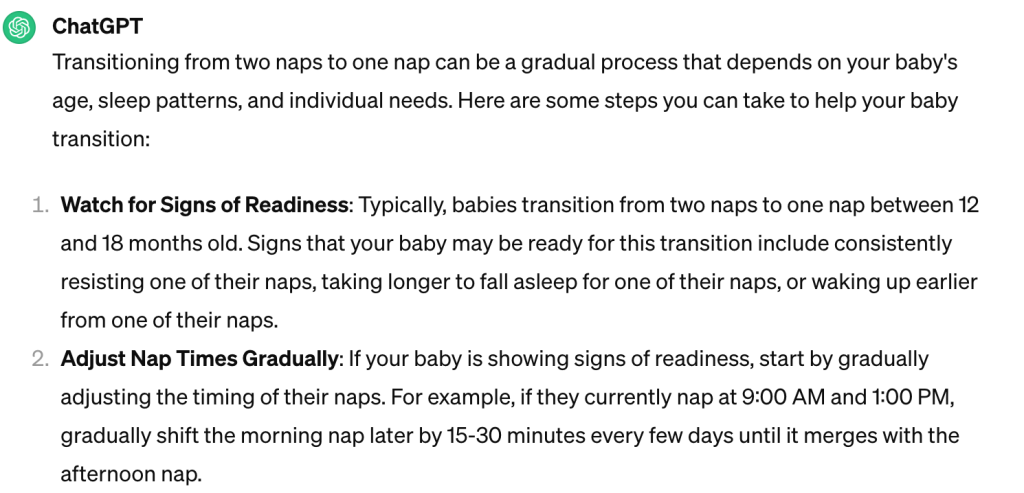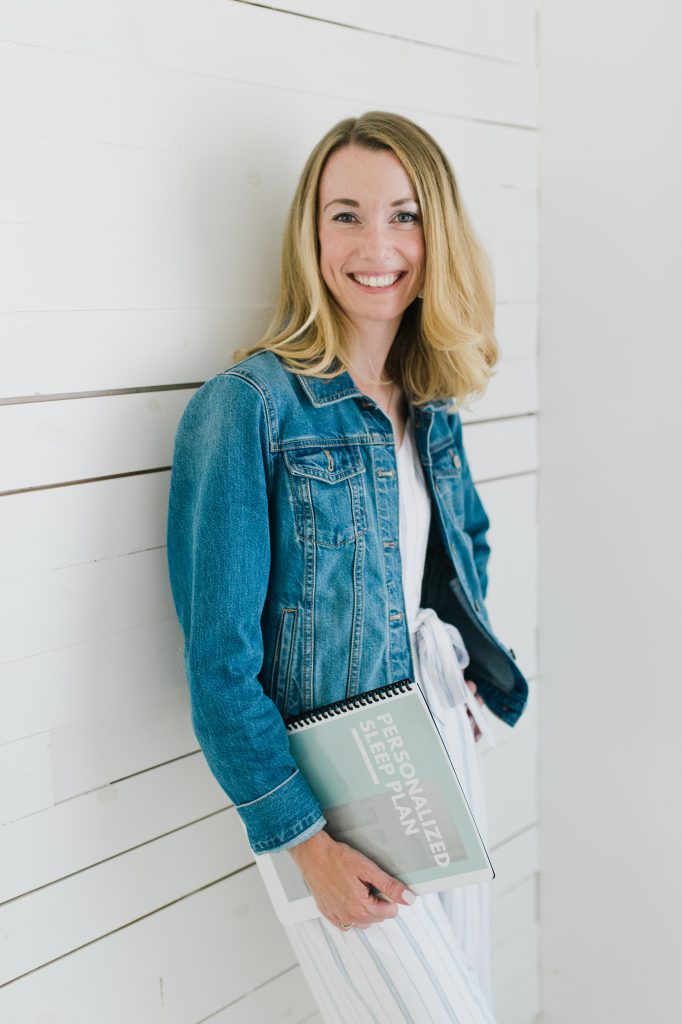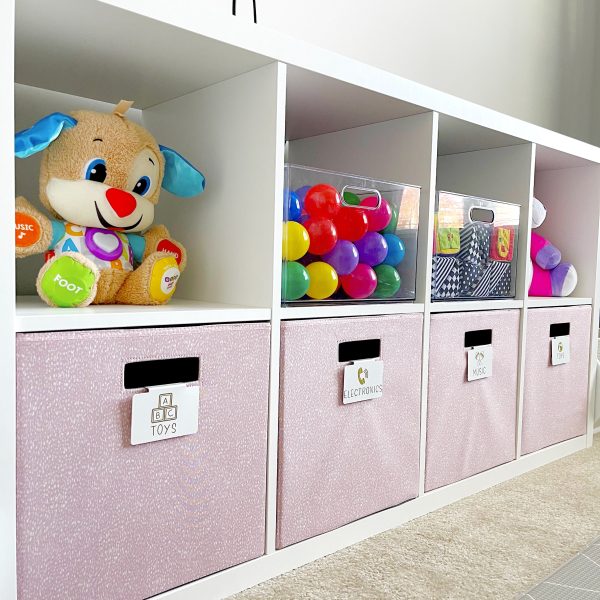There is no doubt that the future raising children is changing with the use of artificial intelligence (AI). From baby monitors using an AI to track personal sleep patterns, to figuring out if you have paid parental leave, we know there is value that AI can offer. The question becomes, can ChatGPT and AI software actually solve your child’s sleep struggles? The answer, sometimes. Let’s dive in together to learn more about when to ask ChatGPT and when to reach out to a sleep expert!

When to ask ChatGPT
The internet has a lot of content these days! A lot of sleep experts such as myself have written many blogs, articles, and social media content that helps train AI with data and solutions which help many common sleep problems. In fact when it comes to intelligence ChatGPT is just as smart as a physician may be (when it comes to tests that is). A study in 2023 showed that the performance of ChatGPT, a language-based AI, performed at or near the passing threshold of 60% accuracy on the United States Medical Licensing Exam (USMLE). The USMLE is a set of three standardized tests of expert-level knowledge, which are required for medical licensure in the United States (Kung, et al., 2023).
A parent problem such as a child transitioning from 2 naps down to 1 could potentially be solved rather easily by asking ChatGPT, as you can see a portion of the answer below:

ChatGPT offers the parent some tangible tips to make this transition and for many babies they will make jump down to one nap with ease! ChatGPT put in valuable time tables for developmental readiness, as well as how to physically make the adjustment in your child’s schedule. You can find more on my blog too here 🙂
What I want you to think through when you get these answers is “am I just making a nap transition or am I also working on dropping the pacifier, transitioning from the infant to toddler room at daycare, and going through daylight saving time?”. Artificial intelligence can help you get from point A to point B as long as there aren’t any major detours along the way.
Limitations of ChatGPT
One major downside, that I hope changes, within AI is that it is not searching valid literature and scientific journal databases, but rather pulling data from current content on the internet. The problem here is that we are relying on what experts are saying to be true. As we all know just because a lot of people are calling a spade a spade doesn’t mean there is evidence to prove that. I personally like to have evidenced based parenting whenever available to help me make my parenting decisions, and at this time ChatGPT is falling short in providing evidenced based care.

Another limitation in ChatGPT is that it lacks in providing reliable management recommendations when it comes to the care of clients. One example described in a recent study of evaluating ChatGPT’s performance in diagnosing and managing spinal pathologies showed that ChatGPT fell short in providing reliable management recommendations, with a 30% misdiagnosis rate and 53% mismanagement rate (Chalhoub, 2024).
When to seek out an expert instead
One way to look at behavioral change with the help of AI is that ChatGPT can give you the roadmap. Just as you can ask it how to loose 10 lbs. When I asked ChatGPT “Can you tell me how to loose 10 lbs?” the reply was “Losing weight can be achieved through a combination of healthy eating, regular exercise, and lifestyle changes.”. Easy peasy right? Not always! If you need a plan specific to your body type, metabolism, age, and lifestyle then having someone walk the journey with you can improve your outcomes greatly.

If you have tried sleep training before or the recommendations ChatGPT is giving you seem too vague to help your non-robot family then I am here to help! Reach out to book a discovery call today with your favorite real person and sleep expert, Dr. Kelsey Alford, DNP. I’m here to give you a plan, guidance, and support to reach your family’s sleep goals with evidenced based and empathetic care.
References:
Chalhoub R, Mouawad A, Aoun M, Daher M, El-Sett P, Kreichati G, Kharrat K, Sebaaly A. Will ChatGPT be Able to Replace a Spine Surgeon in the Clinical Setting? World Neurosurg. 2024 Feb 28:S1878-8750(24)00314-0. doi: 10.1016/j.wneu.2024.02.101. Epub ahead of print. PMID: 38417624.
Chat GPT. (2024, March). Chat GPT 3.5. https://chat.openai.com/
Kung TH, Cheatham M, Medenilla A, Sillos C, De Leon L, Elepaño C, et al. (2023) Performance of ChatGPT on USMLE: Potential for AI-assisted medical education using large language models. PLOS Digit Health 2(2): e0000198. https://doi.org/10.1371/journal.pdig.0000198


